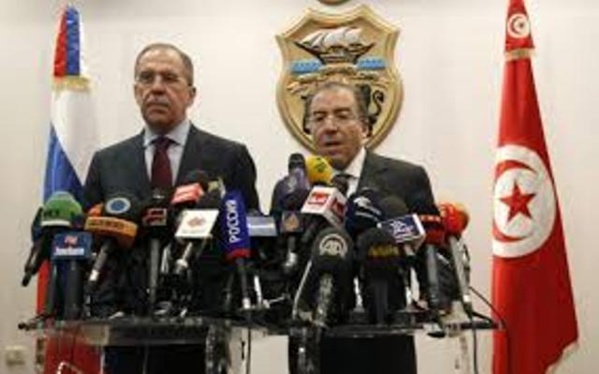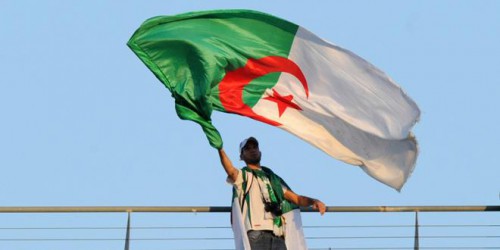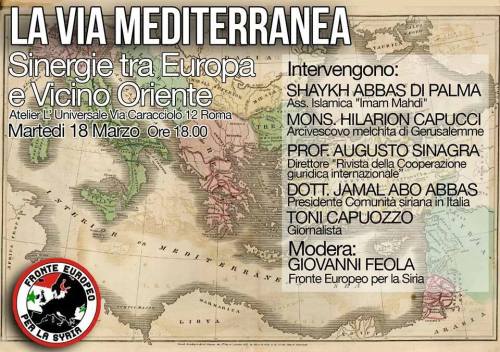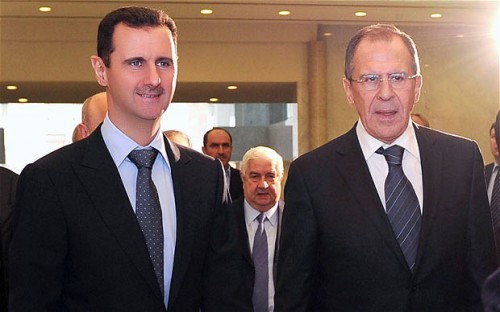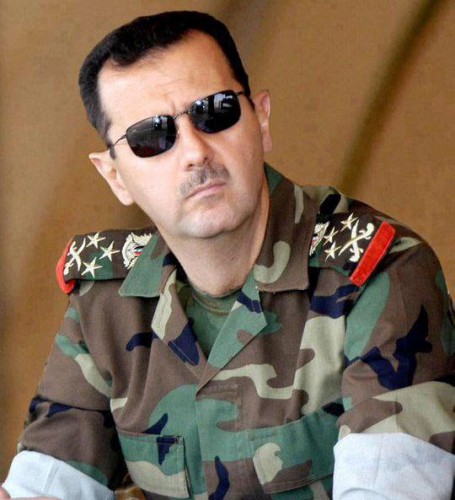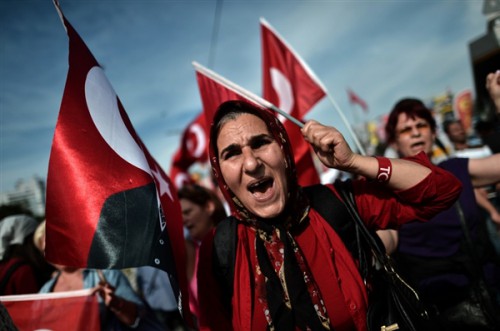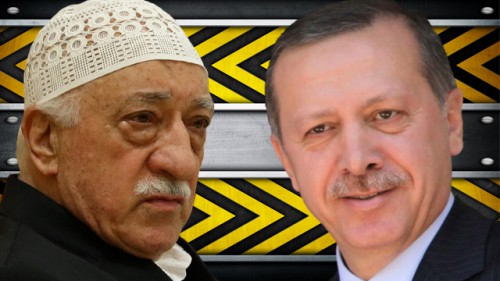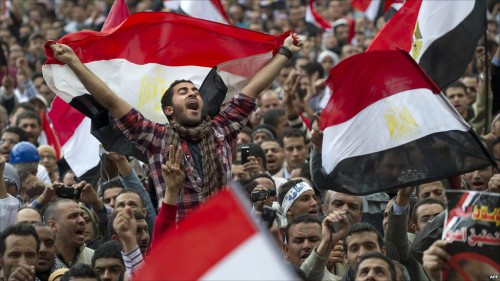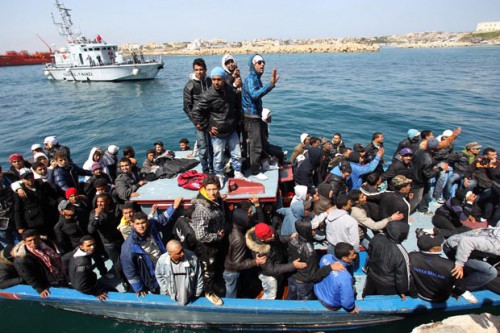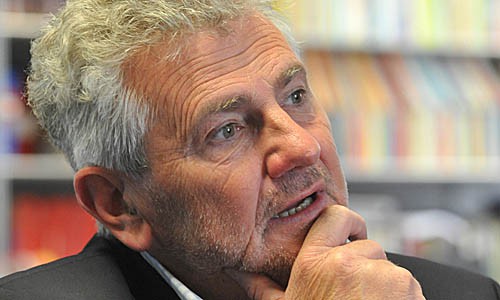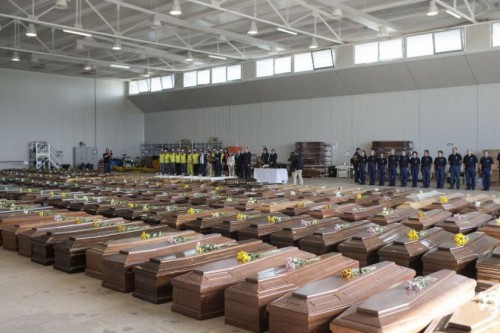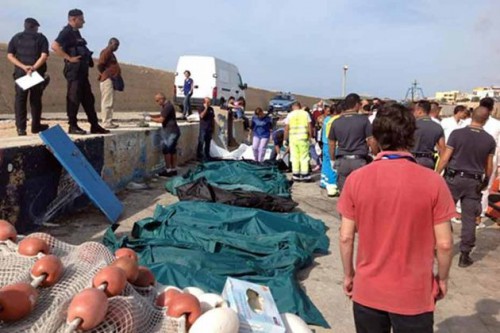|
Durant ces trois années de crise et de guerre en Syrie, l’une des plus grandes surprises aura sans aucun doute été la ténacité du président syrien Bachar al-Assad.
Avec sa physionomie de bonhomie, son jeune âge et son expérience limitée, personne ne s’attendait à ce qu’il tienne bon.
A aucun moment, depuis mars 2011, il n’a affiché de signe de faiblesse, tout en sachant que c’est sa tête qui était visée. Pendant longtemps, son départ était non seulement une exigence indiscutable, mais aussi une prévision indélébile, pour les milieux occidentaux, arabes et turcs qui soutenaient l’insurrection en Syrie. D’autant que 15 milliards de dollars ont été déboursés pour le faire renverser.
Durant les deux premières années de la crise syrienne, les déclarations de politiciens concernés et analyses d’experts prévoyaient sa chute imminente dans les deux mois de leur annonce et renouvelaient sans cesse le délai. Le président syrien était présenté par les medias et centre de recherches comme «impopulaire», « renfermé dans sa bulle», ou perdant le sens des réalités.
Scénarios à l'eau
Plusieurs scénarios étaient envisagés : qu’il soit délogé de Damas : pour soit se replier vers les régions alaouites ou quitter le pays, pour se rendre en Russie entre autre. Assad a tenu à répondre en personne à ces allégations, assurant qu’il ne fait pas partie de « ces capitaines qui sautent du navire qui coule ».
L’éventualité de son assassinat a été envisagée avec force et il a été question d’une mise à prix de sa tête, en échange de la somme modique d’un million de dollars. Conscient de cette option, il avait conseillé à ses partisans de frapper les "intérêts des Etats Unis et d'Israël, en Mer Rouge et en Méditerranée", s’il lui arrive quelque chose. En mars 2013, il semble qu’une tentative ait été concoctée par les services de renseignements français et turcs, via des agents kurdes qui ont tenté d’enrôler des ouvriers d’une société sanitaire chargé d’entretenir les palais présidentiels. Elle a été avortée avant que quoique ce soit ne se passe.
Déceptions et aveux
Comme il n’en a rien été de tous ces scénarios, on a commencé dès la fin de 2012 à douter qu’il puisse partir.
A commencer par les Américains et Israéliens.
En janvier, l’ancien ambassadeur américain à Damas, Robert Ford, a déclaré: « Je ne sais pas comment Assad va partir, il se peut qu’il ne parte jamais, il ne veut pas partir », a-t-il répété à plusieurs reprises cette conclusion.
Chargé du dossier syrien, il s’était dévoué corps et âme pour faire réussir l’insurrection syrienne, s’employant entre autre à persuader des officiers et des diplomates alaouites à faire défection de l’armée et du corps diplomatique syriens. Cette conviction a été consolidée par l’intervention du Hezbollah.
Côté israélien, centres d’études, officiers et politiciens ont multiplié les constats du même genre, selon lesquels le renversement d’Assad n’est pas facile. La situation stratégique de la Syrie, l’unité des rangs de l’armée et sa popularité sont mises en avant comme facteurs.
« Le président Bachar el Assad a contredit tous les pronostics, il a tenu bon et n’a pas fui. Il a vraiment les gênes de son père », a rapporté le quotidien israélien le Yediot Aharonot, citant le commandant de la région nord le colonel Yaïr Golan.
Pourtant, les desideratas du gouvernement israélien, selon les medias israéliens privilégiaient une Syrie dirigée par Al-Qaïda que par Assad !
Les dirigeants européens et arabes ne tarderont pas à s’y résigner, sans toujours le reconnaitre.
Assad le populaire
En même temps, certains milieux médiatiques ou des renseigenements occidentaux se sont mis à rendre compte d’un fait longtemps occulté ou négligé ou qu'on a refusé de voir: la popularité d’Assad.
ALrs que Reuters a timidement évoqué quelque 70% des Aleppins rangés derrière leur président, la CIA assurait à partir de mai qu’il serait accrédité de 75% des voix des Syriens en 2014, si élections présidentielles ont lieu. Et l’Otan suivait le pas le mois suivant.
En plus du soutien de son peuple, le président syrien disposait d’un important atout de force : le soutien infaillible de l’Iran et de la Russie. Cette dernière a résisté à toutes sortes de pressions et d’offres alléchantes pour l’amener à renoncer à Assad.
Offres arabes et américaines
Les deux plus importantes ont été formulées par le Qatar, et puis par l’Arabie Saoudite. Doha a proposé entre autre aux Russes que leur base navale à Tartous serait protégée par l’ASL s’ils renoncent à Assad. Plus tard, c’est Bandar Ben Sultane qui prend le relai et propose la sienne, à la base de la carotte et du bâton, en proposant de juteux contrats militaires et d’investissements, la promotion du rôle russe dans la région, et des garanties sécuritaires pour les jeux olympiques de Sotchi.
Moscou a aussi résisté aux manœuvres de séduction américaines menées par Kerry en personne, pour la persuader de ne pas faire participer Assad à la période de transition et lui conseiller de partir. Souvent, des rumeurs se répandaient pour dire que les Russes ont plié. Au bout de ce bras de fer, les Américains se sont mis à prôner un double langage : un jour, ils appellent au dialogue entre toutes les factions syriennes ; le lendemain, ils disent qu’Assad n’a pas sa place dans la transition.
Assad et les alliés
Ces tergiversations ne semblaient pas du tout inquiéter le numéro un syrien. Bien au contraire, il paraissait confiant de ses atouts de force, dont sur le plan interne la fidélité du corps diplomatique syrien où les désistements ont été rares, en dépit des sommes séduisantes qui leur ont été accordées.
Il évoquait aussi avec assurance le soutien indéfectible de ses alliés, iranien, russe et du Hezbollah.
L’aide économique que lui a procuré Téhéran, l’a aidé à réduire les effets destructeurs des sanctions et de l’inertie des rouages économiques du pays. L’Iran a même fait part de sa disposition à aider son allié syrien si une attaque américaine avait lieu.
Durant cette phase critique, sur fond d’accusation d’utilisation par Damas d’armes chimiques dans la Ghouta orientale, l’intervention des Russes aura été également décisive pour parvenir à l’accord sur l’arsenal chimique syrien et qui a écartée définitivement le spectre d’une attaque américaine.
En mai, l’intervention du Hezbollah dans la bataille de Qousseir a donné un important coup de pouce à l’armée syrienne, débordée par l’avènement de milliers de jihadistes, surtout via la frontière libanaise.
Rencontres
Tout au long de l’année, malgré les menaces de mort, Assad multipliera ses rencontres avec des délégations venues de toutes parts, ses apparitions médiatiques et autres. La plus forte sera sans aucun doute celle avec les membres de son gouvernement et du parti, à l’Opéra de Damas, sur fond d’une énorme affiche tapissée des photos des martyrs de l’armée syrienne.
En Aout, il s’est rendu en personne dans la banlieue de Damas Darayya, qui venait d’être sécurisée, pour y saluer les soldats. Il n’a pas non plus changé son habitude de participer à la prière des fêtes religieuses islamiques (Fitr et Adha). Dans la dernière, les rebelles ont propagé la rumeur de son assassinat !
Discours
Dans ses interventions, il présente dans ses apparitions sa vision de l’insurrection en Syrie
Ce n’est pas une « révolution,..., mais une guerre entre la patrie et ses ennemis,.., une vengeance contre le peuple syrien qui a refusé leur révolution,.., une guerre avec des étrangers, mais avec des mains syriennes,..., une crise plus dictée par des velléités régionales et internationales, que par des revendications de réformes internes, et qui renferme l’intention de détruire la Syrie ---
Quant à la solution, elle passe selon lui par l’éradication du terrorisme, phrase qu’il ne cessera de répéter tout au long de l’année à plus d’une occasion. Avec l’entrée en force des milices d’Al-Qaïda, qui ont délogé celles de l’ASL, il peut surtout se targuer d’avoir été le premier à l’avoir prévu, alors que l’ASL s’employait pour présenter la présence des « jihadistes » comme étant un coup de main provisoire. Dans ses interventions, il a aussi prôné le dialogue entre toutes les factions du peuple syrien, celles de l’intérieur et celles de l’extérieur.
Assad: au suivant!
En cette fin d’année, Assad est plus que jamais déterminé à se présenter candidat aux élections présidentielles prévues en 2014 et est plus que jamais confiant de triompher.
Il a vu son rival qatari le prince Hamad remplacé, son détracteur turc Erdogan sur le point de l’être, l’attaque américaine contre son pays écartée à jamais, l’ASL s’effondrer. Ses prévisions sur l’extrémisme qui prend en otage la Syrie se confirment. A la fin de l’an, il a été droit au but, stigmatisant le wahhabisme saoudien dans ses deux dimensions politique et religieuse, et appelant à lutter contre lui. Personne n'a osé avant lui.
|




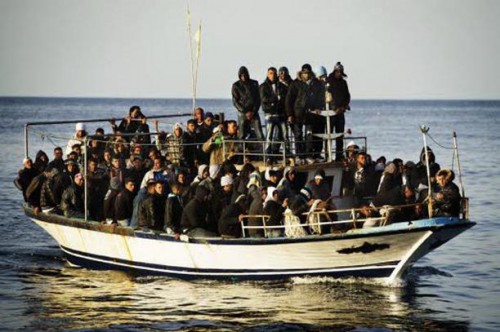

 del.icio.us
del.icio.us
 Digg
Digg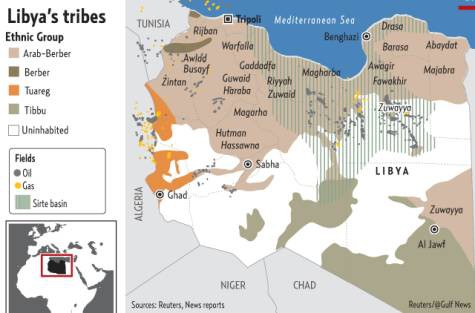
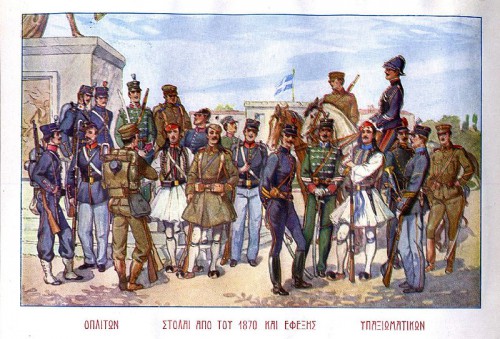
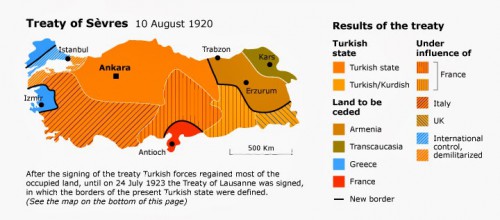
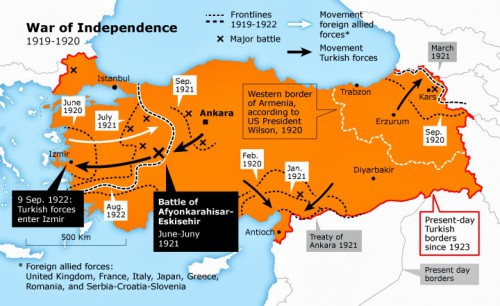
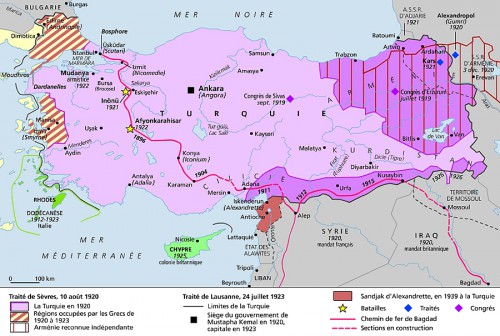
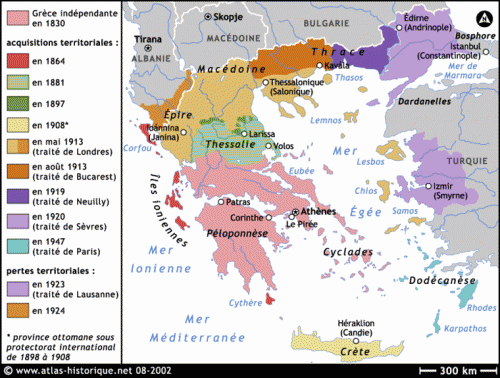
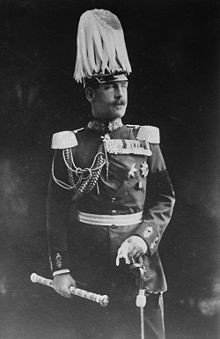 C'est sous son règne que le territoire national grec s'est agrandi: en 1864, il acquiertl es Iles Ioniennes avec Corfou; en 1881, il s'adjoint la Thessalie; en 1913, de vastes zones s'ajoutent au royaume au Nord et à l'Est. C'est là le résultat des guerres balkaniques, où le Prince Constantin, fort de sa formation militaire auprès de l'état-major général allemand, mène ses troupes à la victoire. Constantinople a vraiment été à portée de main…
C'est sous son règne que le territoire national grec s'est agrandi: en 1864, il acquiertl es Iles Ioniennes avec Corfou; en 1881, il s'adjoint la Thessalie; en 1913, de vastes zones s'ajoutent au royaume au Nord et à l'Est. C'est là le résultat des guerres balkaniques, où le Prince Constantin, fort de sa formation militaire auprès de l'état-major général allemand, mène ses troupes à la victoire. Constantinople a vraiment été à portée de main…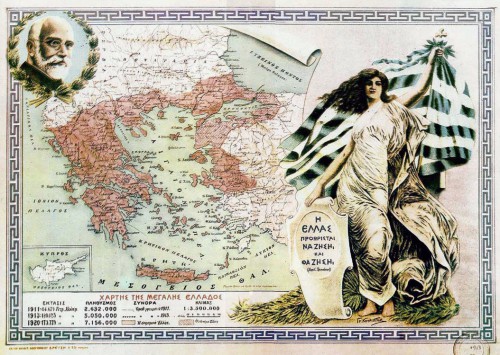
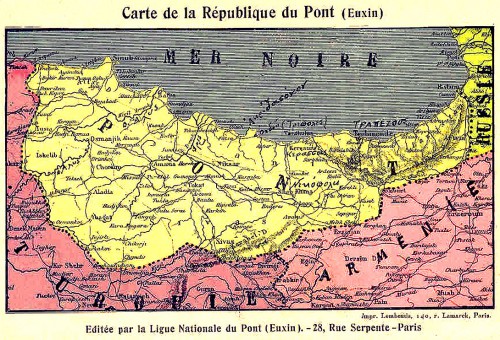
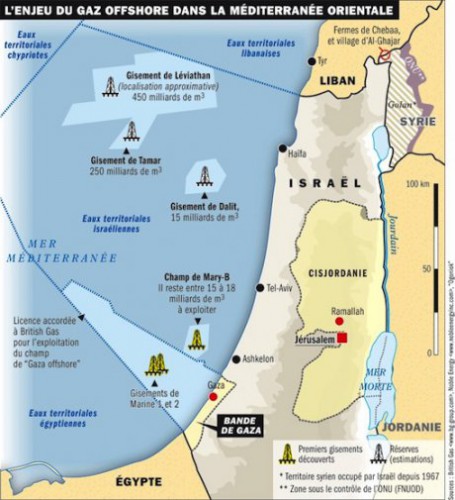
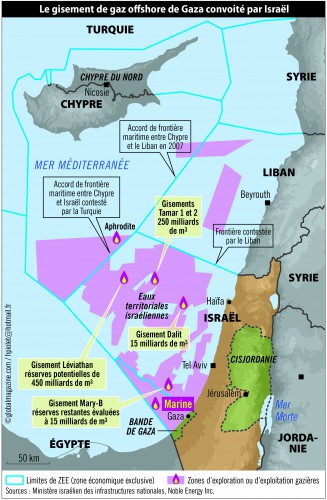 Per capire qual è uno degli obiettivi dell’attacco israeliano a Gaza bisogna andare in profondità, esattamente a 600 metri sotto il livello del mare, 30 km al largo delle sue coste. Qui, nelle acque territoriali palestinesi, c’è un grosso giacimento di gas naturale, Gaza Marine, stimato in 30 miliardi di metri cubi del valore di miliardi di dollari. Altri giacimenti di gas e petrolio, secondo una carta redatta dalla U.S. Geological Survey (agenzia del governo degli Stati uniti), si trovano sulla terraferma a Gaza e in Cisgiordania. Nel 1999, con un accordo firmato da Yasser Arafat, l’Autorità palestinese affida lo sfruttamento di Gaza Marine a un consorzio formato da British Gas Group e Consolidated Contractors (compagnia privata palestinese), rispettivamente col 60% e il 30% delle quote, nel quale il Fondo d’investimento dell’Autorità ha una quota del 10%. Vengono perforatidue pozzi, Gaza Marine-1 e Gaza Marine-2. Essi però non entrano mai in funzione, poiché sono bloccati da Israele, che pretende di avere tutto il gas a prezzi stracciati. Tramite l’ex premier Tony Blair, inviato del «Quartetto per il Medio Oriente», viene preparato un accordo con Israele che toglie ai palestinesi i tre quarti dei futuri introiti del gas, versando la parte loro spettante in un conto internazionale controllato da Washington e Londra. Ma, subito dopo aver vinto le elezioni nel 2006, Hamas rifiuta l’accordo, definendolo un furto, e chiede una sua rinegoziazione. Nel 2007, l’attuale ministro della difesa israeliano Moshe Ya’alon avverte che «il gas non può essere estratto senza una operazione militare che sradichi il controllo di Hamas a Gaza». Nel 2008, Israele lancia l’operazione «Piombo Fuso» contro Gaza. Nel settembre 2012 l’Autorità palestinese annuncia che, nonostante l’opposizione di Hamas, ha ripreso i negoziati sul gas con Israele. Due mesi dopo, l’ammissione della Palestina all’Onu quale «Stato osservatore non membro» rafforza la posizione dell’Autorità palestinese nei negoziati. Gaza Marine resta però bloccato, impedendo ai palestinesi di sfruttare la ricchezza naturale di cui dispongono. A questo punto l’Autorità palestinese imbocca un’altra strada. Il 23 gennaio 2014, nell’incontro del presidente palestinese Abbas col presidente russo Putin, viene discussa la possibilità di affidare alla russa Gazprom lo sfruttamento del giacimento di gas nelle acque di Gaza. Lo annuncia l’agenzia Itar-Tass, sottolineando che Russia e Palestina intendono rafforzare la cooperazione nel settore energetico. In tale quadro, oltre allo sfruttamento del giacimento di Gaza, si prevede quello di un giacimento petrolifero nei pressi della città palestinese di Ramallah in Cisgiordania. Nella stessa zona, la società russa Technopromexport è pronta a partecipare alla costruzione di un impianto termoelettrico della potenza di 200 MW. La formazione del nuovo governo palestinese di unità nazionale, il 2 giugno 2014, rafforza la possibilità che l’accordo tra Palestina e Russia vada in porto. Dieci giorni dopo, il 12 giugno, avviene il rapimento dei tre giovani israeliani, che vengono trovati uccisi il 30 giugno: il puntuale casus belli che innesca l’operazione «Barriera protettiva» contro Gaza. Operazione che rientra nella strategia di Tel Aviv, mirante a impadronirsi anche delle riserve energetiche dell’intero Bacino di levante, comprese quelle palestinesi, libanesi e siriane, e in quella di Washington che, sostenendo Israele, mira al controllo dell’intero Medio Oriente, impedendo che la Russia riacquisti influenza nella regione. Una miscela esplosiva, le cui vittime sono ancora una volta i palestinesi.
Per capire qual è uno degli obiettivi dell’attacco israeliano a Gaza bisogna andare in profondità, esattamente a 600 metri sotto il livello del mare, 30 km al largo delle sue coste. Qui, nelle acque territoriali palestinesi, c’è un grosso giacimento di gas naturale, Gaza Marine, stimato in 30 miliardi di metri cubi del valore di miliardi di dollari. Altri giacimenti di gas e petrolio, secondo una carta redatta dalla U.S. Geological Survey (agenzia del governo degli Stati uniti), si trovano sulla terraferma a Gaza e in Cisgiordania. Nel 1999, con un accordo firmato da Yasser Arafat, l’Autorità palestinese affida lo sfruttamento di Gaza Marine a un consorzio formato da British Gas Group e Consolidated Contractors (compagnia privata palestinese), rispettivamente col 60% e il 30% delle quote, nel quale il Fondo d’investimento dell’Autorità ha una quota del 10%. Vengono perforatidue pozzi, Gaza Marine-1 e Gaza Marine-2. Essi però non entrano mai in funzione, poiché sono bloccati da Israele, che pretende di avere tutto il gas a prezzi stracciati. Tramite l’ex premier Tony Blair, inviato del «Quartetto per il Medio Oriente», viene preparato un accordo con Israele che toglie ai palestinesi i tre quarti dei futuri introiti del gas, versando la parte loro spettante in un conto internazionale controllato da Washington e Londra. Ma, subito dopo aver vinto le elezioni nel 2006, Hamas rifiuta l’accordo, definendolo un furto, e chiede una sua rinegoziazione. Nel 2007, l’attuale ministro della difesa israeliano Moshe Ya’alon avverte che «il gas non può essere estratto senza una operazione militare che sradichi il controllo di Hamas a Gaza». Nel 2008, Israele lancia l’operazione «Piombo Fuso» contro Gaza. Nel settembre 2012 l’Autorità palestinese annuncia che, nonostante l’opposizione di Hamas, ha ripreso i negoziati sul gas con Israele. Due mesi dopo, l’ammissione della Palestina all’Onu quale «Stato osservatore non membro» rafforza la posizione dell’Autorità palestinese nei negoziati. Gaza Marine resta però bloccato, impedendo ai palestinesi di sfruttare la ricchezza naturale di cui dispongono. A questo punto l’Autorità palestinese imbocca un’altra strada. Il 23 gennaio 2014, nell’incontro del presidente palestinese Abbas col presidente russo Putin, viene discussa la possibilità di affidare alla russa Gazprom lo sfruttamento del giacimento di gas nelle acque di Gaza. Lo annuncia l’agenzia Itar-Tass, sottolineando che Russia e Palestina intendono rafforzare la cooperazione nel settore energetico. In tale quadro, oltre allo sfruttamento del giacimento di Gaza, si prevede quello di un giacimento petrolifero nei pressi della città palestinese di Ramallah in Cisgiordania. Nella stessa zona, la società russa Technopromexport è pronta a partecipare alla costruzione di un impianto termoelettrico della potenza di 200 MW. La formazione del nuovo governo palestinese di unità nazionale, il 2 giugno 2014, rafforza la possibilità che l’accordo tra Palestina e Russia vada in porto. Dieci giorni dopo, il 12 giugno, avviene il rapimento dei tre giovani israeliani, che vengono trovati uccisi il 30 giugno: il puntuale casus belli che innesca l’operazione «Barriera protettiva» contro Gaza. Operazione che rientra nella strategia di Tel Aviv, mirante a impadronirsi anche delle riserve energetiche dell’intero Bacino di levante, comprese quelle palestinesi, libanesi e siriane, e in quella di Washington che, sostenendo Israele, mira al controllo dell’intero Medio Oriente, impedendo che la Russia riacquisti influenza nella regione. Una miscela esplosiva, le cui vittime sono ancora una volta i palestinesi. 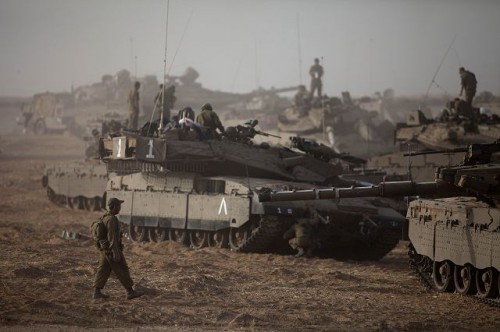
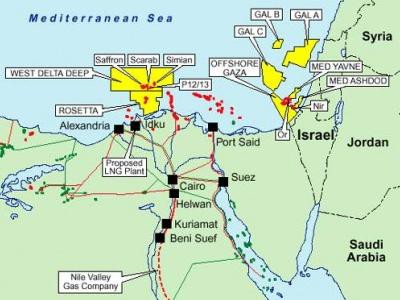 L'animosité de Netanyahu n'est pas dictée, en fin de compte, par le fait que le Hamas refuse obstinément de reconnaître le droit d'Israël à l'existence. La réconciliation entre le Hamas et le Fatah élimine ipso facto le principal obstacle à la solution dite de "deux Etats" et donc à la naissance d'un Etat palestinien indépendant. Ce dernier, s'il ne se limitait pas à la seule Cisjordanie mais comprenait aussi la Bande de Gaza, serait économiquement viable. En effet, devant les côtes de la Bande de Gaza, on a découvert en l'an 2000 d'énormes gisements de gaz.
L'animosité de Netanyahu n'est pas dictée, en fin de compte, par le fait que le Hamas refuse obstinément de reconnaître le droit d'Israël à l'existence. La réconciliation entre le Hamas et le Fatah élimine ipso facto le principal obstacle à la solution dite de "deux Etats" et donc à la naissance d'un Etat palestinien indépendant. Ce dernier, s'il ne se limitait pas à la seule Cisjordanie mais comprenait aussi la Bande de Gaza, serait économiquement viable. En effet, devant les côtes de la Bande de Gaza, on a découvert en l'an 2000 d'énormes gisements de gaz. 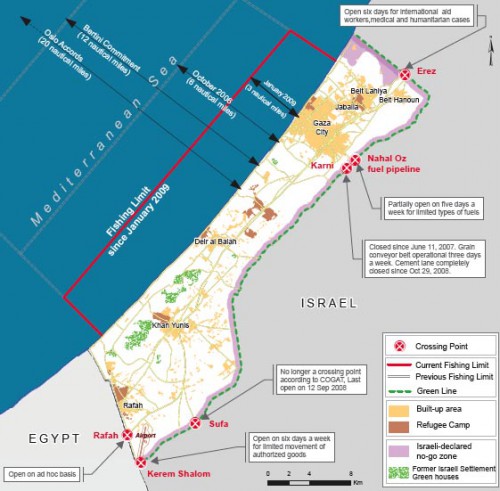
 Las bases del gran Próximo Oriente se establecieron en el Pacto del Quincey (1.945) siguiendo la doctrina de los acuerdos franco- británicos Sykes-Picot de 1.916 que favorecían la división regional del poder en zonas de influencia y sustentada en el trípode EEUU-Egipto-Arabia Saudí. Dicha doctrina consistía en la pervivencia endémica en Egipto de gobiernos militares autocráticos pro-occidentales, lo que aseguraba la supervivencia del Estado de Israel (1.948) y proporcionaba a la Marina de EEUU de un acceso privilegiado al Canal de Suez, atajo crucial para el acceso directo a los Emiratos Árabes, Irak y Afganistán, quedando como firme bastión de los intereses geopolíticos de EEUU en la zona, máxime tras la caída del Sha de Persia en 1980.
Las bases del gran Próximo Oriente se establecieron en el Pacto del Quincey (1.945) siguiendo la doctrina de los acuerdos franco- británicos Sykes-Picot de 1.916 que favorecían la división regional del poder en zonas de influencia y sustentada en el trípode EEUU-Egipto-Arabia Saudí. Dicha doctrina consistía en la pervivencia endémica en Egipto de gobiernos militares autocráticos pro-occidentales, lo que aseguraba la supervivencia del Estado de Israel (1.948) y proporcionaba a la Marina de EEUU de un acceso privilegiado al Canal de Suez, atajo crucial para el acceso directo a los Emiratos Árabes, Irak y Afganistán, quedando como firme bastión de los intereses geopolíticos de EEUU en la zona, máxime tras la caída del Sha de Persia en 1980.
